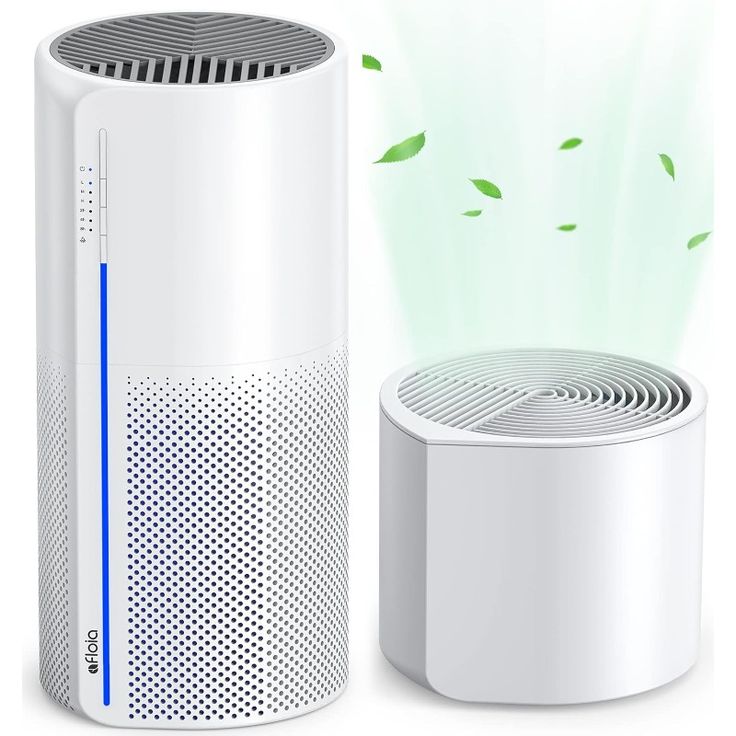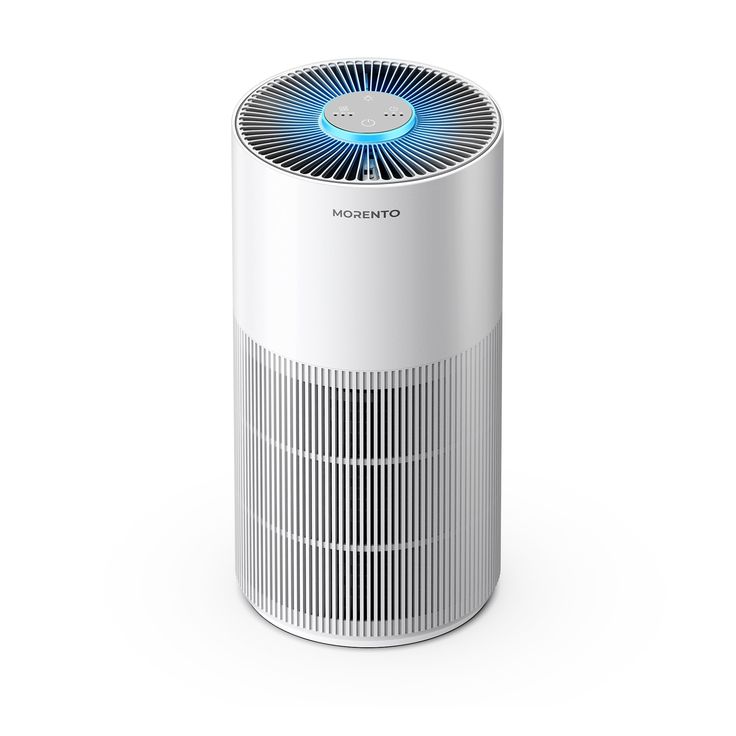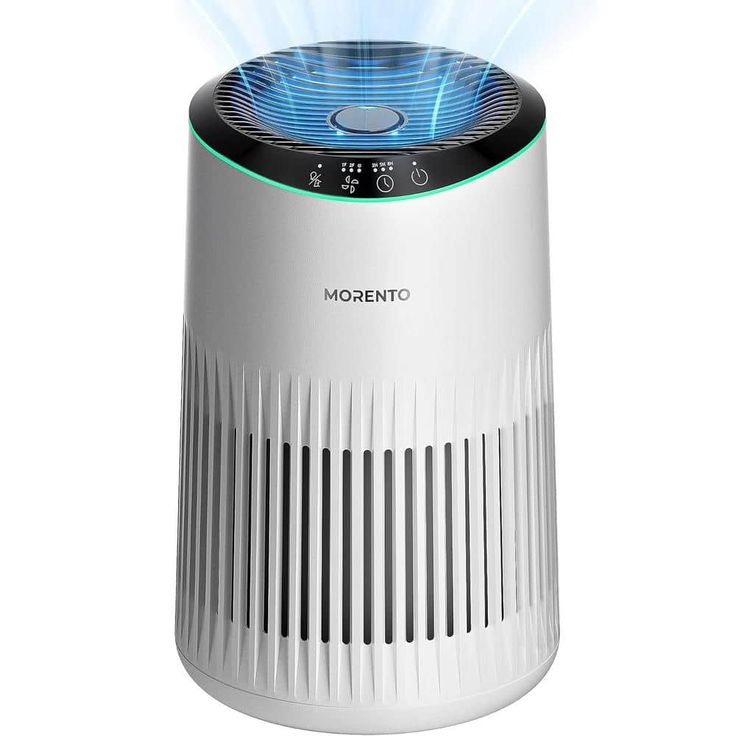Air quality is a growing concern for many individuals, especially considering the increasing levels of pollution and allergens in urban environments. As we spend a significant amount of time indoors, the quality of the air we breathe in our homes and workplaces may have a direct impact on our health. This leads many to ask, “Should I get an air purifier?” In this article, we will delve into the reasons why investing in an air purifier may be beneficial for your health and well-being.

Understanding Indoor Air Quality: Should I Get an Air Purifier?
Indoor air quality can often be poorer than outdoor air quality, with pollutants such as dust, pet dander, mold spores, and volatile organic compounds (VOCs) being prevalent. This can trigger allergies, asthma attacks, and other respiratory issues.
- Types of airborne pollutants: Common pollutants include smoke, allergens, and VOCs from products we use daily.
- Health implications: Poor air quality is linked to a range of health issues, from minor irritations to severe respiratory diseases.
- Evidence and statistics: Research shows that indoor air can contain levels of pollutants that are significantly higher than those found outdoors.
Considering these fctors leads many to the question, “Should I get an air purifier?” The answer often leans towards yes, especially for sensitive individuals or those living in high-pollution areas.
How Air Purifiers Work: Should I Get an Air Purifier?
To assess whether investing in an air purifier is beneficial, it’s crucial to comprehend the operational mechanisms of these devices.
- Mechanism of Action:
Air purifiers are designed to effectively eliminate indoor air pollutants. They utilize various filters and advanced technologies to capture, neutralize, and eliminate harmful substances from the air we breathe. By removing allergens, dust, and other particulates, these devices can significantly enhance indoor air quality. - Types of Filters:
One of the primary components of air purifiers is the filter system. HEPA (High-Efficiency Particulate Air) filters are widely regarded as the gold standard in air purification. These filters can capture an impressive 99.97% of particles as small as 0.3 microns, including pet dander, pollen, and even some bacteria. This high level of filtration makes HEPA filters highly effective for allergy and asthma sufferers. - Additional Technologies:
In addition to HEPA filters, many air purifiers incorporate supplementary technologies to enhance their purifying capabilities. For instance, some models employ UV light to kill germs and bacteria, while others use activated carbon to absorb odors and volatile organic compounds (VOCs). Ionization technology may also be utilized to attract and trap airborne particles, providing even cleaner air.
In conclusion, considering these points might lead to the question: “Should I get an air purifier?” If the technology aligns with your health needs, living conditions, and lifestyle, investing in an air purifier could be a significant step toward improving your indoor air quality and promoting a healthier living environment.
The Benefits of Air Purifiers for Allergies: Should I Get an Air Purifier?
For individuals suffering from allergies, clean air is crucial.
- Alleviating allergy symptoms: Air purifiers can significantly reduce allergens like pollen, mold spores, and pet dander in your home.
- Improving quality of life: Many users report improved sleep and overall comfort when using air purifiers.
- Medical recommendations: Many healthcare professionals recommend air purifiers as part of managing allergy symptoms.
Thus, if you’re grappling with allergies, the question “Should I get an air purifier?” tends to have a favorable response.

Air Purifiers for Asthma Relief: Should I Get an Air Purifier?
Asthma sufferers can benefit tremendously from cleaner air.
- Environmental triggers: Many asthma sufferers are sensitive to various environmental pollutants. Common triggers include dust mites, smoke, mold spores, pollen, and pet dander. Air purifiers are designed to filter out these harmful particles from the air, creating a cleaner indoor environment. By reducing the presence of these irritants, air purifiers can alleviate symptoms, leading to fewer asthma attacks and improved breathing.
- Studies on impact: Research shows a significant correlation between the use of air purifiers and a decrease in asthma symptoms. In controlled studies, participants using air purifiers reported fewer attacks and easier breathing, particularly in environments where pollutants are prevalent. Such evidence suggests that investing in a quality air purifier can have a real, positive impact on asthma management.
- Overall health management: Incorporating an air purifier into your living space not only addresses immediate asthma symptoms but also contributes to holistic health management. While air purifiers should complement prescribed medications, their use can help stabilize overall respiratory health. Cleaner air can enhance the effectiveness of asthma medications, allowing for a more manageable approach to tackling this chronic condition.
Therefore, for asthma management, the question “Should I get an air purifier?” often leads to a resounding yes.
Protecting Your Family’s Health: Should I Get an Air Purifier?
Maintaining a healthy home environment is vital for the well-being of your family.
- Children and vulnerable populations: Young children, the elderly, and those with pre-existing conditions are more susceptible to poor air quality.
- Creating a safe environment: Investing in an air purifier can significantly reduce health risks associated with indoor toxins.
- Long-term health considerations: Regular use of air purifiers may contribute to long-term health improvements for all family members.
In conclusion, for those concerned about family health, the query, “Should I get an air purifier?” is worth serious consideration.

The Environmental Impact of Air Purifiers: Should I Get an Air Purifier?
When considering the purchase of an air purifier, it’s essential to evaluate the environmental implications alongside the health benefits. Here are some key points to consider:
- Energy consumption: Different air purifiers have varying energy consumption rates. Some models may use significantly more electricity, which can lead to higher utility bills and a larger carbon footprint. It’s advisable to look for energy-efficient models, like those with an Energy Star certification, to minimize environmental impact while maintaining indoor air quality.
- Sustainability of filters: Many air purifiers utilize HEPA filters that need to be replaced regularly, contributing to waste accumulation. A significant number of filters are made from materials that are not biodegradable and can end up in landfills. To address this concern, consider brands that offer reusable or recyclable filters, which minimize waste and promote a more sustainable approach to cleaner air.
- Balancing effectiveness and eco-consciousness: While the primary goal of an air purifier is to improve indoor air quality, it’s crucial to balance this benefit with environmental considerations. Look for purifiers that effectively filter pollutants without requiring excessive energy or producing unnecessary waste.
As you reflect on whether to invest in an air purifier, keep in mind these environmental factors. They may lead you toward options that align with both your health needs and a commitment to sustainability.
Making the Right Choice: Should I Get an Purifier?
When considering the purchase of an air purifier, it’s essential to evaluate your specific needs and circumstances.
- Identify pollutants: Understand what pollutants you aim to eliminate and select an air purifier suited for those needs.
- Size and capacity: Ensure the air purifier is appropriate for the size of your space for maximum efficiency.
- Budget considerations: Compare prices and features to find an air purifier that meets your financial constraints without sacrificing quality.
In light of all this information, if you find yourself continually asking, “Should I get an air purifier?”, it’s likely a sign that the answer is yes.
Conclusion
In conclusion, air purifiers can significantly enhance your indoor air quality, leading to improved health and well-being, especially for those suffering from allergies or asthma. With increasing awareness of the dangers of indoor air pollution, the question “Should I get an air purifier?” merits serious consideration. By weighing the benefits, understanding how they operate, and recognizing one’s health needs, purchasing an air purifier can be a proactive step toward a healthier home environment. As awareness continues to grow, so does the importance of clean air in maintaining our overall health, making the investment in an air purifier a compelling option for many.
